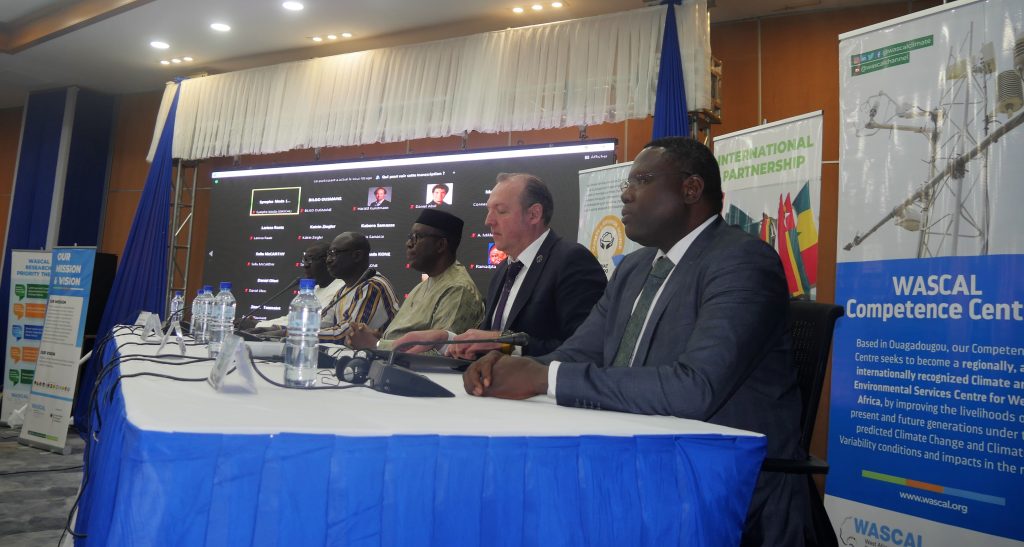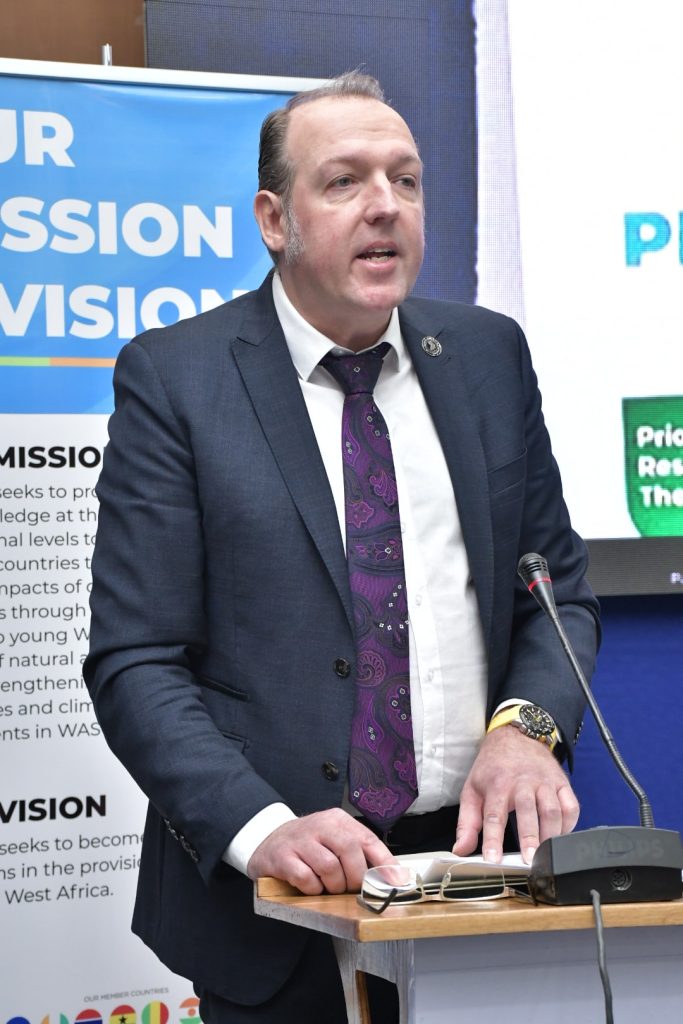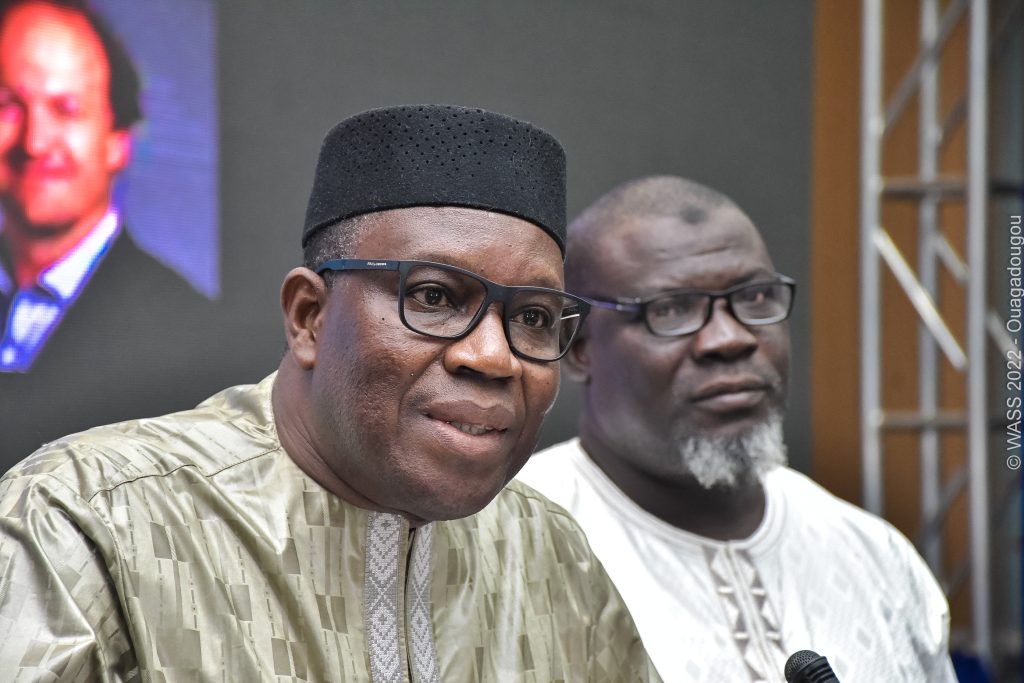
WASCAL has organized the second edition of its Science Symposium, in Ouagadougou, Burkina Faso, under the theme: ‘’ Research, Innovation, and capacity building to combat climate change and improve livelihoods in West Africa.
This year’s Symposium took place under the chairmanship of the Honorable minister of Higher Education and Research of the Republic of Mali, Prof. Amadou Keita, who is also WASCAL’s Ministerial Council Chair.
Prof. Keita, during his opening remarks, highlighted some key conclusions of the global Climate Change Conference, COP27 which took place in Sharm El-Sheik in Egypt. He called on his colleague Ministers of states, and policymakers from across the sub-region to translate their words into action to ensure that we achieve the United Nations Sustainable Development Goal 13 (UN SDG13) on Climate Action.
‘’At COP27, resolutions were made, and principal among them was countries reaching a historic decision to establish and operationalize a loss and damage fund, particularly for nations most vulnerable to the climate crisis. I would also like to use this opportunity to call on my colleague Ministers of states and policymakers from across the sub-region to revisit their Nationally Determined Contributions (NDCs), to take stock of their implementation strategies, and design new ways of ensuring that we achieve UN SDG 13 on Climate Action’’. He spoke.
Prof. Adjima Thombiano, Minister of Higher Education, Research and Innovation of Burkina Faso, line Minister of WASCAL, commended WASCAL for organizing the Symposium which will, in no doubt, contribute to knowledge sharing on advances and innovation in combating Climate Change and improving livelihoods. He was also pleased with the continuous partnership between WASCAL and the German government, through the Federal Ministry of Education and Research (BMBF) which has allowed development actions over the past decade. He particularly mentioned the relevance of the Competence Centre and emphasized on the need to work towards the construction of the new Competence Centre building in Burkina Faso.
‘’Burkina Faso is confident that in the next days, the construction of this ultramodern building will undoubtedly begin for the benefit of the children of the West African sub-region, Africa and the entire world. In this regard, I invite all stakeholders to be diligent, to give their time and energy so that this jewel emerges from the ground to enable our common Institution to properly fulfil its mission’’. He said during his speech.
Speaking on behalf of BMBF, Prof. Christoph Röevekamp, Head of Energy and Green Hydrogen Technologies Division, reaffirmed ‘’the firm intention of BMBF to jointly open new horizons in its cooperation with WASCAL’’. He clearly pointed out BMBF green hydrogen commitment in the search for sustainable solutions against the adverse effects of climate change
‘’For us at the German Federal Ministry of Education and Research, one thing is clear: the future belongs to renewable energies. After all, the use of fossil fuels is the main cause of climate change. They account for over 80% of greenhouse gas emission’’, he added.
Prof. Mahamadou Hassirou, WASCAL Governing Board Chair commended the international community’s awareness of the reality and negative impact of climate change on people’s lives and called for collective action to find solutions.
‘’We have all gathered here because we have collectively convinced ourselves that humanity is under the threat of a phenomenon called Climate Change which we cannot fight in silos. We have all come to the realization that the dangerous effects of Climate Change, demand a critical need to develop innovative and collective efforts to deal with it’’ He spoke.
The four-day symposium included plenary as well as parallel sessions, special sessions for Graduate schools and alumni, and poster exhibitions which was an opportunity for scientists and researchers to discuss on thematics related to Land use, Land Cover, Climate Smart Agriculture and Food Security, Climate risk and vulnerability, Water Resources Management, Renewable Energy and Bio-economy, Rural-urban and Cross Border Migration, Transboundary Security, Big Data Management, and Information Technology.
To sharpen the awareness of the youth and engage them in the fight against climate change, kids from two primary schools of Ouagadougou, had the opportunity to exchange with scientists and to visit exhibition stands and posters.
The WASCAL Science Symposium was a landmark scientific platform focusing on trends and innovations in combating Climate Change and improving livelihoods. The goal was to position WASCAL as a regional hub for research, climate service provider in Africa and to take stock of the achievements to interact with relevant stakeholders on state of-art- research and future initiative for sustainable development, and increased livelihood in West Africa.
In attendance were Ministerial Council Members of the WASCAL member countries, German Federal Ministry of Education and Research, WASCAL Board and Scientific Advisory Committee members, WASCAL Directorate of Capacity Building and Graduate School, partner institutions, scientists and stakeholders working in diverse area of Climate Change and climate services provision, civil society and Non-Governmental Organizations.



